[Piggyback Plants: The Genus Tolmiea in the Cascade Mountains of Oregon and Washington]
Youth-on-age, Piggyback Plant, Piggy-back Plant
Tolmiea menziesii
Synonym: Tiarella menziesii
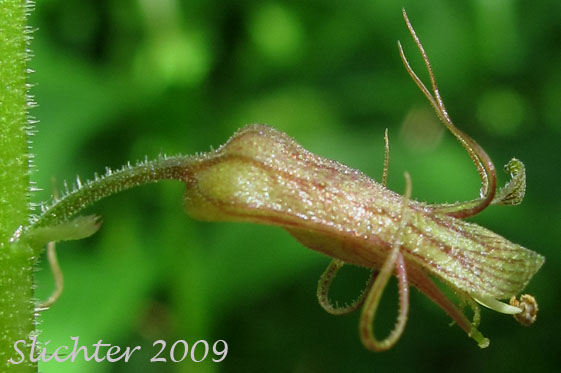
Close-up of the flower of youth-on-age photographed near Crown
Point in the western Columbia River Gorge........mid May 2001.
 Characteristics:
Characteristics:
The piggy-back plant is an attractive perennial with erect,
hairy stems arising to 80 cm in height from a basal cluster of hairy leaves
atop a rhizome. The basal leaves are simple with palmate venation with roughly
a heart shape. The margins are shallowly 5-7 lobed and coarsely toothed, often
with smaller teeth atop the larger ones. The leaves are born on 7-20 cm long
petioles. The stems contain 3-5 leaves of reduced size.
The inflorescence is an open raceme of brownish striped, tube-shaped
flowers. The flowers may be up to 6 mm long. The tube-shaped calyx or sepals
are green with purple or brown stripes. The petals are chocolate brown and thread-like.
They are up to twice as long as the calyx lobes.
This plant gets its names as a result of their ability to reproduce
vegetatively. Buds develop at the base of the leaf blades. The buds may form
small plants, which if the leaf touches the ground, afford the plantlets an
opportunity to root and become larger plants.
The genus name refers to Dr. William Tolmie who was a physician
for the Hudson's Bay Company at Ft. Vancouver in 1832. The species name refers
to Archibald Menzies who was the first European to botanize the Pacific Northwest.
Habitat:
The piggy-back plant is found in moist, dark woods. They like
rich soil with an abundance of humus.
Range:
The piggyback plant may be found from southern Alaska south
along the coast (and usually no further east than the Cascade crest) to near
Santa Cruz, CA.
In the Columbia River Gorge, it may be found between the elevations
of 100'-4000' from the western entrance to the gorge as far east as the hills
to the west of Hood River, OR.
 -
- 
Close-up images of the inflorescence and leaf of youth-on-age observed along the Butte Camp Trail in forest above Butte Camp Meadows, Mount St. Helens National Volcanic Monument......August 11, 2022.
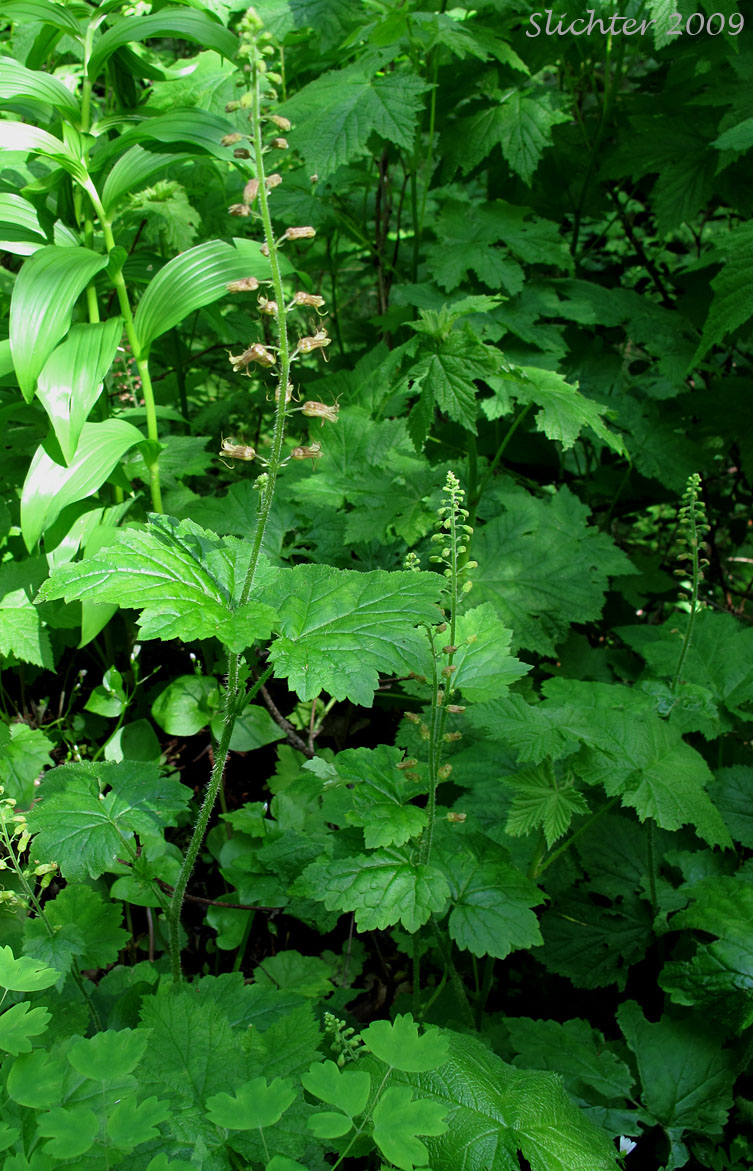 -
- 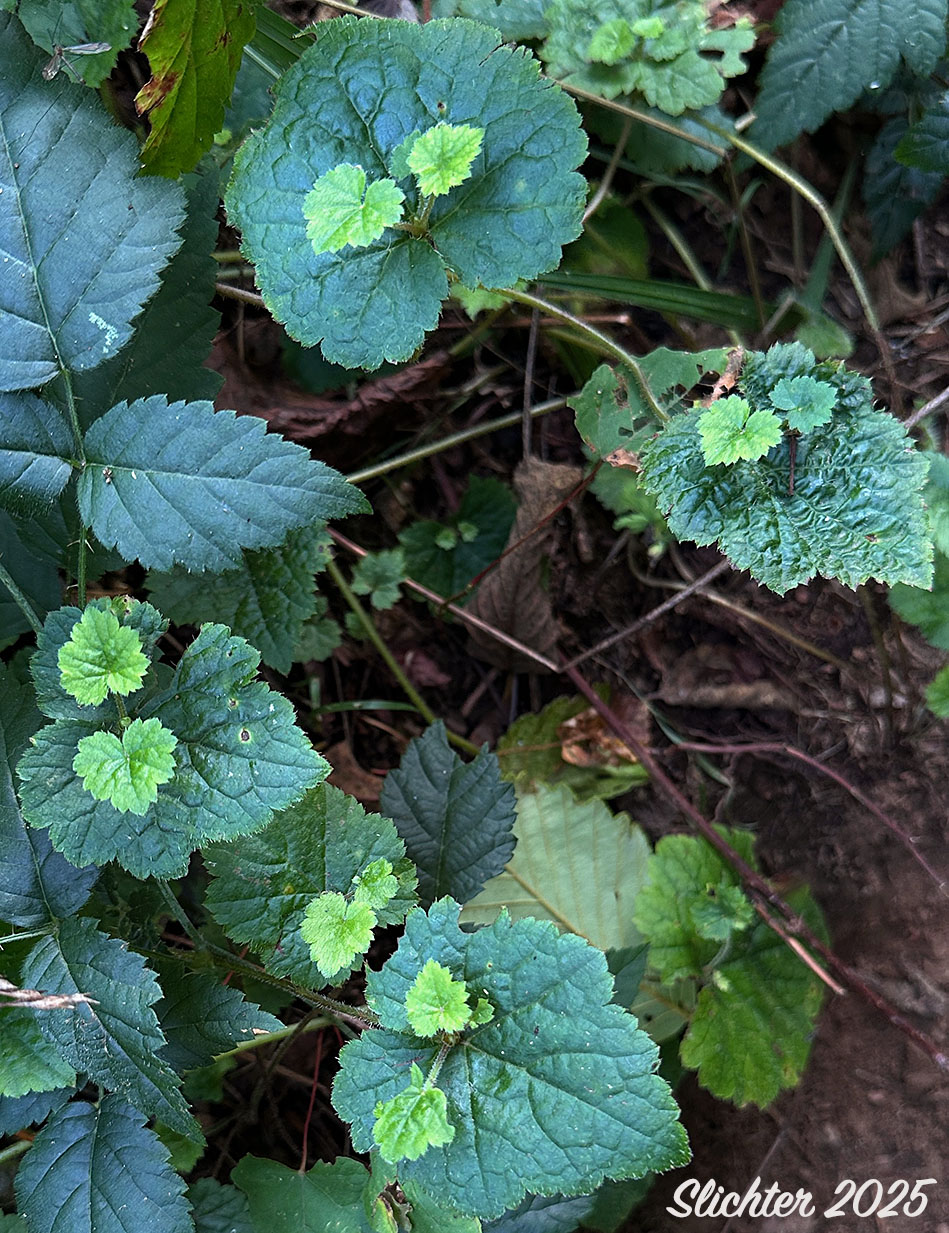
Youth-on-age as seen t left along the McCord Creek Trail in the western Columbia River Gorge.......May 20, 2009. The leaves of western meadowrue (Thalictrum occidentale), false solomon seal (Maianthemum racemosum) and thimbleberry(Rubus parviflrous) can also be seen in this view. The image at right shows the leaves of youth-on-age with young, asexual leaves in coniferous forest along the Dry Creek Trail #194, Gifford Pinchot National Forest.....September 27, 2025.
 -
- 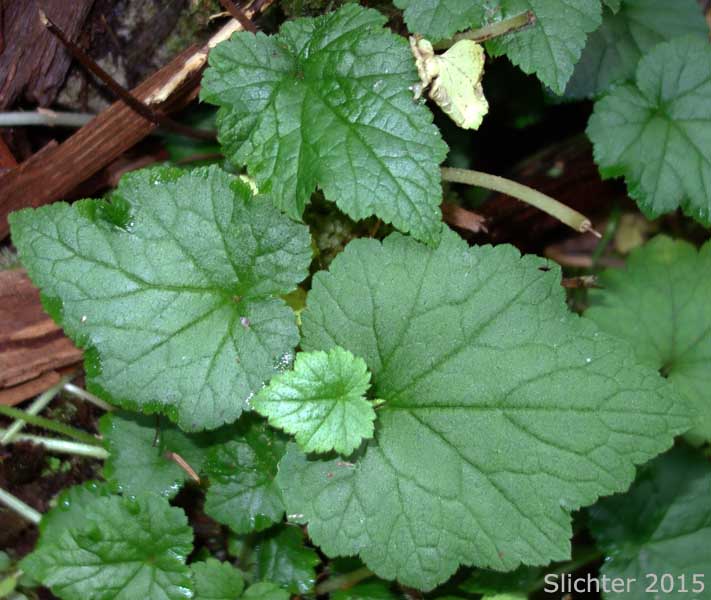
Youth-on-age as seen along the Toutle Trail adjacent to McBride Lake, Mt. St. Helens National Volcanic Monument.......September 13, 2015.
 -
- 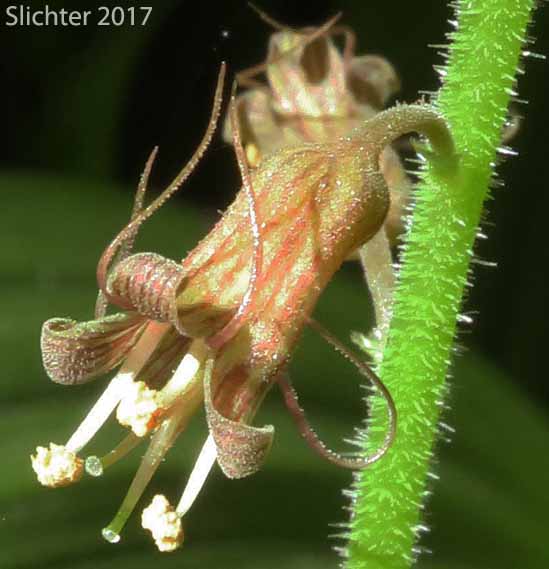
Youth-on-age as seen at Butte Camp adjacent to the stream there, Mt. St. Helens National Volcanic Monument......July 23, 2017.
 -
- 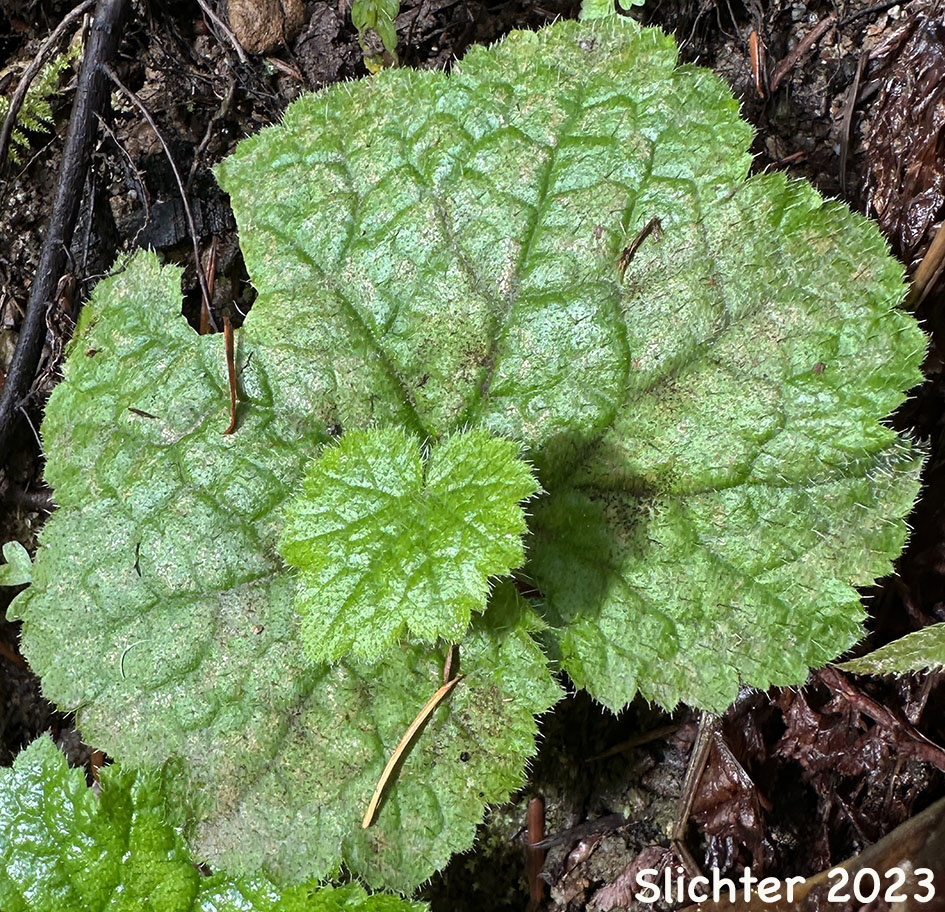
A close-up of the leaf of youth-on-age showing a new plantlet growing at the base of the blade. the plantlet will eventually drop off (or the older leaf falls to the ground) and take root in the ground. This example of asexual reproduction gives the species its common name.
The photo at right shows such a leaf as seen along the Lewis River Trail #31 between the Curly Creek Trailhead and Bolt Camp, Gifford Pinchot National Forest.......October 13, 2023.
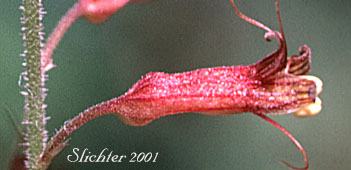
Close-up of the flower of youth-on-age photographed near Crown
Point in the western Columbia River Gorge........mid May 2001.
Paul Slichter
 Characteristics:
Characteristics:
